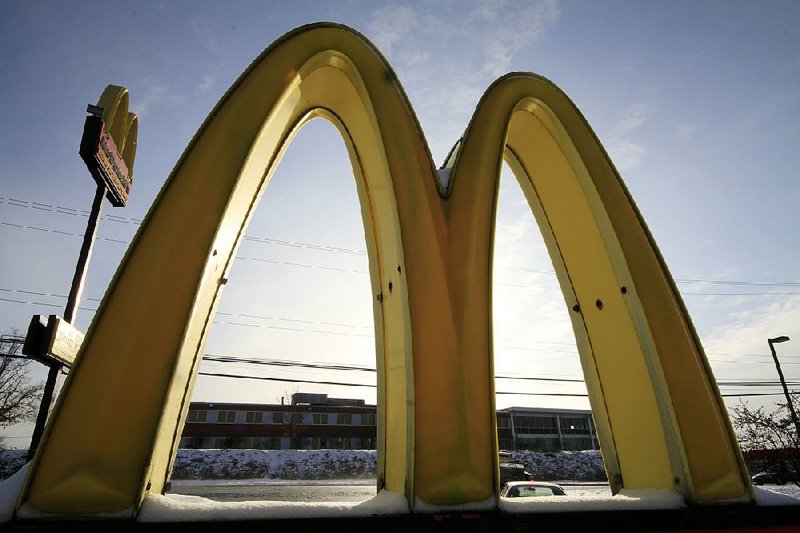Tyson Foods is working with the McDonald's Corp. to eliminate certain types of antibiotics from the chicken that ends up on fast-food trays nationwide.
McDonald's announced Wednesday the company is phasing out chicken raised using antibiotics deemed important to human health. And Tyson -- a supplier -- said it supports McDonald's and is looking forward to working with the company to meet its mandate.
Antibiotics not used in human medicine would continue to be allowed.
"Our customers want food that they feel great about eating -- all the way from the farm to the restaurant -- and these moves take a step toward better delivering on those expectations," said McDonald's U.S President Mike Andres in a statement.
The move comes as pressure mounts on pharmaceutical companies and animal producers to limit antibiotic use in order to preserve their effectiveness on human health.
In addition to combating infection, antibiotics are added to the animal feed or drinking water of cattle, hogs, poultry and other food-producing animals to help them gain weight faster or use less food to gain weight, the U.S. Food and Drug Administration says.
In December 2013, the FDA issued guidance on how pharmaceutical companies can work with the agency to voluntarily remove growth enhancement and feed efficiency from the approved uses of drug products and require veterinarian oversight.
In an update released a week ago, the agency said drug companies were complying, but some lawmakers believe that the voluntary guidance is too weak.
Sens. Dianne Feinstein, D-Calif., and Susan Collins, R-Maine, introduced legislation Monday that would require the FDA to withdraw its approval of certain antibiotics that are at high risk of abuse, unless the producer of the drug can demonstrate that its use in agriculture does not pose a risk to human health.
"Antibiotic resistance is one of the biggest public health threats we face and we need a comprehensive response to preserve the effectiveness of antibiotics," Feinstein said in a statement. "While FDA took an important step to reduce antibiotic overuse in agriculture, we need to do more."
Regulatory oversight isn't the only way to limit antibiotic use. Jonathan Kaplan, director of Natural Resource Defense Council's food and agriculture program, said in a statement that the move by McDonald's could serve as a tipping point for limiting medically important antibiotics in agriculture.
"The country's largest fast-food chain has committed to working with their suppliers to keep these drugs out of the barns used to raise the chickens for their nuggets, salads and sandwiches," he said. "In doing so, they are setting the bar for the entire fast-food industry."
In a statement, Tyson spokesman Worth Sparkman said the company had reduced the use of antibiotics that are effective in humans by more than 84 percent since 2011. In addition, the company completely stopped using antibiotics in all of its 35 hatcheries last fall.
"The vast majority of the antibiotics used to raise our chickens are never used in humans," he said. "However, the welfare of these animals is very important to us, so we sometimes use FDA-approved antibiotics in a small percent of our flocks to treat or prevent disease, but only when prescribed by a veterinarian."
"We expect to continue reductions in our use of antibiotics that are effective in humans and encourage the industry to research alternatives."
Wednesday wasn't the first time McDonald's and Tyson have collaborated to ease consumer concerns about the chain's food.
Embattled by the perception that its food is artificial, McDonald's launched a transparency campaign in 2014 focused on how its food is made.
Videos hosted by MythBusters co-host Grant Imahara took an inside look at how McDonald's suppliers make key foods -- including how Tyson Foods makes Chicken McNuggets.
"I've seen how they make the Chicken McNuggets and exactly what goes into them," Imahara said in the video. "I know a lot of you were expecting pink slime or the whole chicken -- beak and claws and everything -- but that's not the case. The reality is that they're made with white meat chicken. There's no mystery."
Tyson spokesman Gary Mickelson referred questions about how chicken production would change to McDonald's. McDonald's didn't return a request for further comment.
Business on 03/05/2015
